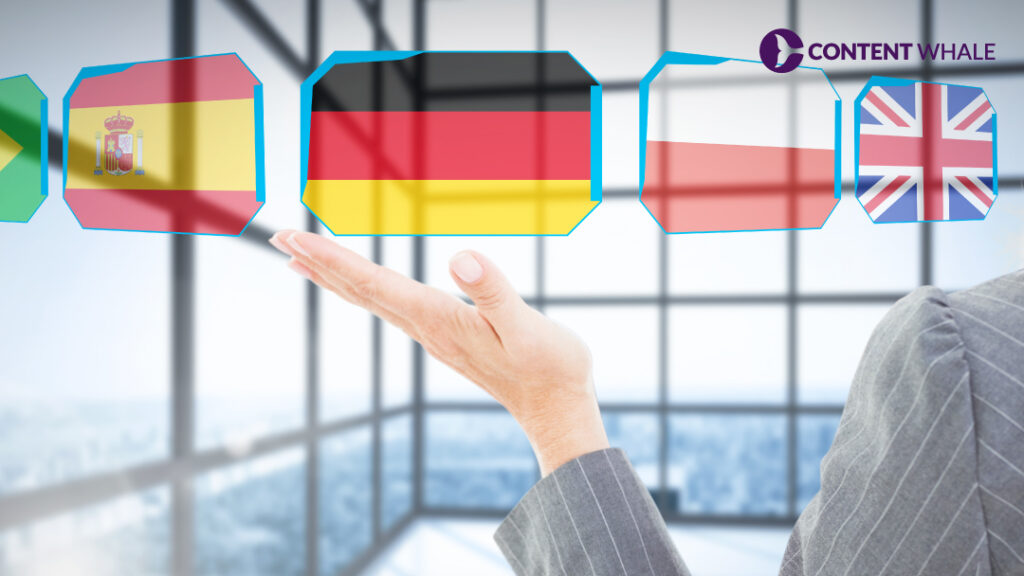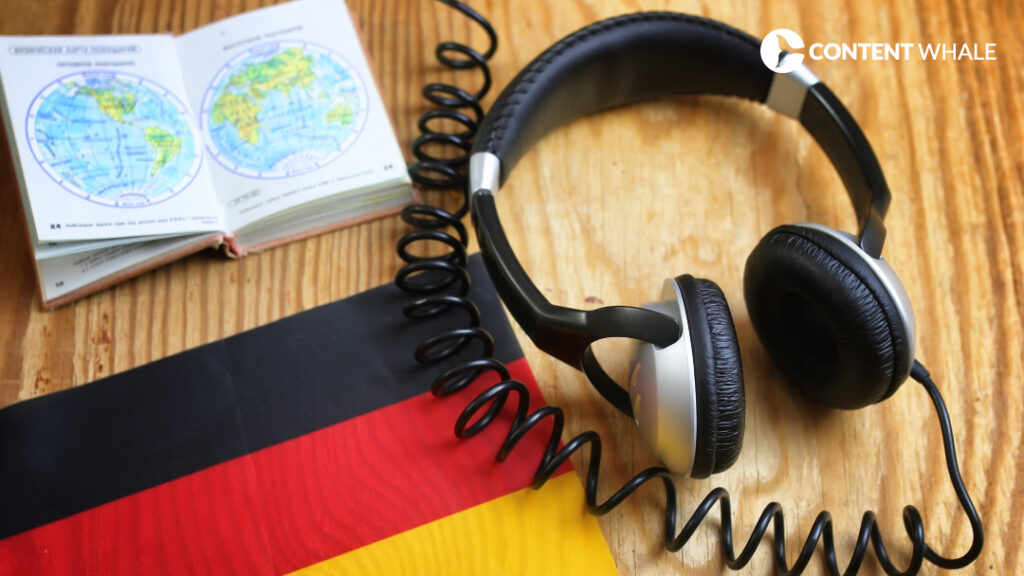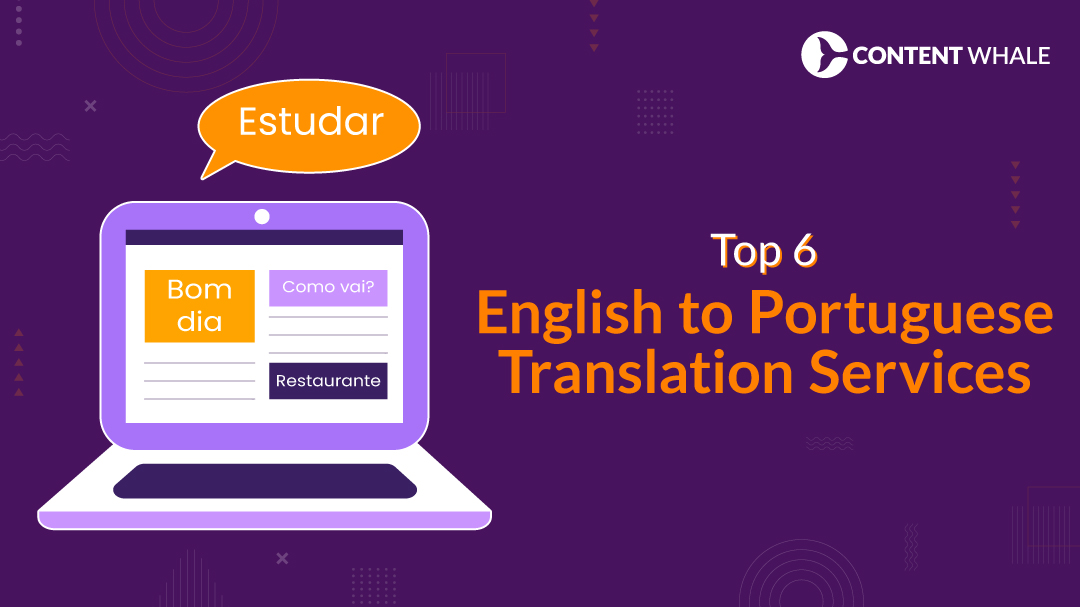In the heart of Europe, Germany stands as an economic powerhouse, influencing markets across the globe. But did you know that nearly 60% of Germans say they’re more likely to purchase products with information in their native language? As companies aim to tap into this lucrative market, the need for accurate and culturally resonant English To German translation services becomes paramount.
Navigating the linguistic and cultural landscape of the German market requires more than just basic translation. It demands a deep understanding of both language and culture to connect with the audience truly.
This blog will explore the critical importance of English to German translation services and how they can drive success in one of the world’s most robust economies. By the end of this read, you’ll understand why investing in professional translation is not just a strategy but a necessity.
The Evolution and Relevance of English to German Translation Services
Historically, translation has played a pivotal role in diplomacy, trade, and cultural exchange. The need to communicate across languages has been essential for centuries, from ancient trade routes to modern-day international business. In today’s global economy, this need has only intensified, especially with Germany being a key player on the world stage.
In a world where English is often the common language of business, why does German translation matter so much? The answer lies in cultural connection and trust. German consumers are known for their attention to detail and preference for precision. They value brands that take the time to communicate in their language, seeing it as a sign of respect and reliability.
Current trends highlight a growing demand for localized content. Businesses are no longer just translating content; they’re adapting it to meet the specific cultural and regional expectations of German-speaking audiences. This shift towards localization is driven by the increasing recognition that one-size-fits-all translations are no longer effective in a diverse global market.
Why German Translation Services are a Game-Changer

At its core, English to German translation is about more than just words. It’s about conveying the right message in a way that resonates with the German market. Accurate translation ensures that your brand’s message, values, and products are communicated effectively, fostering trust and credibility.
The primary argument for investing in professional translation services is simple: without them, you risk miscommunication and alienation of your target audience. Poor translation can lead to misunderstandings, damage to brand reputation, and ultimately, lost business. On the other hand, a well-translated message can open doors to new markets and opportunities, making your brand a familiar and trusted name in Germany.
In this blog, we’ll explore three key points: the importance of certified translations, the role of localization, and the challenges unique to translating English to German.
The Importance of Certified German Translations
Certified German translations are essential when dealing with official documents, legal contracts, or any material where accuracy is non-negotiable. These translations are not just accurate but are also legally recognized, providing an extra layer of assurance for businesses and individuals alike.
Consider a company expanding into Germany that needs to translate its legal contracts. A certified translation ensures that every term, clause, and condition is accurately represented in German, leaving no room for misinterpretation. This level of precision is crucial in legal contexts, where even a small error can have significant consequences.
Moreover, certified translators bring a deep understanding of both legal terminology and the cultural nuances that may impact how a contract is interpreted. This expertise is invaluable in navigating the complexities of international law and ensuring that all parties are on the same page.
Without certified translations, businesses risk facing legal challenges, financial losses, and damage to their reputation. In contrast, using certified services can help prevent these issues, providing peace of mind that all documentation is accurate and legally sound.
The Role of Localization in Translation
Localization is the process of adapting content to fit the cultural and regional nuances of a specific market. For German-speaking audiences, this goes beyond mere translation; it involves tweaking the language, tone, and even the visuals to resonate with local consumers.
For example, a marketing campaign that works well in the U.S. might not have the same impact in Germany. German consumers might perceive certain phrases or images differently due to cultural differences. Localization addresses these differences, ensuring that the content is not only understood but also appreciated by the target audience.
Studies have shown that localized content significantly increases user engagement and conversion rates. A well-localized website, for instance, makes German users feel like the content was created just for them, leading to a stronger connection with the brand and, ultimately, higher sales.
Localization also involves understanding the local market’s preferences and behaviors. This might mean adjusting your pricing strategy, payment options, or customer service approach to align with what German consumers expect. By localizing your content, you’re not just speaking the language; you’re speaking the culture, which is key to building trust and loyalty.
Understanding the Complexities of German Translation

German is known for its complex grammar, long compound words, and formal vs. informal distinctions, all of which present unique challenges for translators. These complexities make it difficult to translate content accurately without losing the intended meaning or tone.
One of the biggest challenges is dealing with compound words, which are common in German. A single English term might translate into a long, compound word in German, making it difficult to maintain the flow and readability of the text.
Additionally, the German language has strict rules for formal and informal language, which can significantly impact how a message is received.
For example, the English word “you” can be translated as either “Sie” (formal) or “du” (informal) in German. Choosing the wrong form can offend the reader or create an unintended tone. Professional translators understand these nuances and can navigate these challenges to ensure that the translation is both accurate and appropriate for the target audience.
These linguistic challenges highlight the importance of using professional translators who are not only fluent in both languages but also deeply familiar with the cultural context.
By overcoming these challenges, businesses can ensure that their content is engaging, clear, and well-received by German audiences.
Why Human German Translators Still Matter

Some might argue that automated translation tools are sufficient for most needs. However, while these tools have their place, they fall short when it comes to capturing the nuances of the German language and culture.
Automated tools can produce translations that are technically correct but often lack the natural flow and context that a human translator provides. They struggle with idioms, cultural references, and the subtleties of tone that are crucial in effective communication. This can lead to awkward, stilted translations that fail to resonate with the audience.
Human translators, on the other hand, bring a level of understanding and expertise that machines simply cannot match. They can adapt the content to the cultural and linguistic context, ensuring that the translation is not only accurate but also engaging and relatable.
In short, human translators are essential for producing high-quality translations that truly connect with the audience.
How do German Translation Services Drive Business Success?
So, how can businesses apply these insights to their operations? First and foremost, they should prioritize working with certified and experienced translators for all important documents and communications. This is especially crucial for legal and official materials, where accuracy is paramount.
Secondly, businesses should invest in localization services to ensure that their content resonates with German-speaking audiences. This includes everything from marketing materials to customer service communications. By localizing content, companies can build stronger connections with their audience, increase engagement, and ultimately drive more sales.
Finally, businesses should stay updated on the latest trends and best practices in translation and localization. This includes understanding the unique challenges of the German market and how to address them effectively. By doing so, companies can stay ahead of the competition and maximize their success in the global marketplace.
Unlocking Global Success with the right English to German Translation Partner

English to German translation services are not just a strategic choice—they are essential for any business looking to succeed in the German market. Accurate translations build trust, enhance brand credibility, and ensure that your message resonates with your target audience. As global markets become increasingly interconnected, the importance of professional translation services will continue to grow.
This is where Content Whale’s English to German translation services come into play. With a team of certified translators who specialize in various industries, including legal, medical, and technical fields, Content Whale ensures that every translation is not only accurate but also culturally adapted to the German market. Our translators are native German speakers with deep expertise in the language, ensuring that your content is both linguistically precise and culturally relevant.
Content Whale’s commitment to quality is backed by impressive statistics: our client satisfaction rate stands at 98%, and we have successfully completed over 15,000 translation projects in the last year alone. We understand the nuances of the German language and culture, and our translations reflect that understanding, making us the preferred choice for businesses aiming to expand their reach in German-speaking regions.
By choosing Content Whale, you’re not just getting a translation service; you’re partnering with a team dedicated to helping your business succeed globally. Let us help you break down language barriers and unlock new opportunities in the German market.
FAQs about English to German Translation Services
- What are the benefits of using certified English to German translation services?
Certified English to German translation services ensure that your documents are not only accurately translated but also legally recognized in German-speaking countries. This is crucial for legal documents, contracts, and any official paperwork where precision is vital. By using certified translation services, businesses can avoid costly errors and ensure that their content meets the stringent requirements of German authorities, thereby building trust and credibility in the German market.
- How does localization improve English to German translation services?
Localization in English to German translation services goes beyond mere language translation by adapting content to meet the cultural, linguistic, and regional nuances of German-speaking audiences. This approach ensures that your content resonates with local consumers, increasing engagement and conversion rates. For instance, localization can involve adjusting idiomatic expressions, cultural references, and even product names to better align with German market expectations, making your brand more relatable and trustworthy.
- What challenges are common in English to German translation?
English to German translation poses several challenges, including handling complex German grammar, long compound words, and formal vs. informal language distinctions. Translators must also be adept at conveying the exact tone and intent of the original English text, ensuring that it is appropriate for the German audience. These challenges underscore the importance of using professional translators who are fluent in both languages and culturally aware, ensuring that the final translation is both accurate and effective.
- Why is SEO important in English to German translation services?
SEO is crucial in English to German translation services because it helps your translated content rank higher on search engines like Google.de. By incorporating relevant keywords and phrases used by German-speaking audiences, professional translators can optimize your content for better visibility. This increases the chances that potential customers in Germany, Austria, and Switzerland will find your website or content, driving more traffic and boosting your business’s online presence in these markets.
- What industries most benefit from English to German translation services?
Industries such as legal, medical, technical, and e-commerce significantly benefit from English to German translation services. In these sectors, accurate and culturally appropriate translations are critical due to the complex and technical nature of the content. For example, legal documents must be translated with precision to avoid misinterpretation, while e-commerce websites need localized content to appeal to German-speaking customers and increase sales.
- How can English to German translation services boost e-commerce sales?
English to German translation services can boost e-commerce sales by ensuring that product descriptions, customer reviews, and marketing materials are accurately translated and culturally adapted. German customers prefer shopping in their native language, and a well-translated e-commerce site can enhance user experience, build trust, and increase conversion rates. Additionally, optimizing translated content with relevant German SEO keywords can improve your site’s visibility on German search engines, attracting more potential buyers.
- What is the role of a professional translator in English to German services?
A professional translator in English to German services plays a critical role in ensuring that translations are not only accurate but also culturally appropriate. They understand the nuances of both languages, enabling them to convey the intended message effectively. Professional translators also ensure that the content is localized, meaning it resonates with the target audience, whether it’s for marketing, legal, technical, or general communication purposes, making your content more effective in reaching German-speaking markets.
- How does cultural awareness impact English to German translations?
Cultural awareness significantly impacts English to German translations by ensuring that the translated content is not only linguistically accurate but also culturally appropriate. This includes understanding local customs, values, and communication styles, which can influence how a message is perceived. Culturally aware translations help avoid misunderstandings and ensure that the content resonates with the German audience, which is crucial for building trust and establishing a strong presence in the German market.
- Why should businesses avoid automated tools for English to German translation?
Businesses should avoid relying solely on automated tools for English to German translation because these tools often fail to capture the nuances of language and culture. Automated translations can result in errors, awkward phrasing, and a lack of contextual understanding, which can lead to miscommunication and a negative perception of your brand. Professional human translators provide the expertise needed to produce high-quality, accurate translations that reflect the intended meaning and tone, ensuring better communication with German-speaking audiences.
- What should you look for in a professional English to German translation service?
When choosing a professional English to German translation service, look for providers with certified translators who have expertise in your specific industry. The service should offer localization, ensuring that the translation is culturally and regionally appropriate. Additionally, the translation service should incorporate SEO best practices to optimize your content for the German market. Reviews, case studies, and a strong portfolio are also important indicators of a reliable translation service that can meet your business needs.
- What is the difference between translation and transcreation in English to German services?
Translation involves converting text from English to German while maintaining the original meaning, whereas transcreation adapts the content creatively to resonate with the German audience. This process often changes not just words, but also the style, tone, and cultural references to ensure the message appeals to the target market. Transcreation is especially useful for marketing materials where emotional impact is crucial.
- How does machine translation post-editing improve English to German translations?
Machine Translation Post-Editing (MTPE) enhances English to German translations by combining the speed of automated translation tools with the expertise of human translators. After the initial machine translation, a professional editor refines the text to correct errors and ensure cultural and linguistic accuracy. This process is ideal for large projects needing quick turnaround while maintaining high quality.
- Why is video translation important for reaching German-speaking audiences?
Video translation is essential for engaging German-speaking audiences, as it allows content to be understood in their native language. This includes translating subtitles, voiceovers, and even on-screen text. With the rise of video content, ensuring it is accessible to non-English speakers through accurate translations can significantly increase your reach and viewer engagement.
- What are the most common mistakes in English to German legal translations?
Common mistakes in English to German legal translations include incorrect use of legal terminology, misinterpretation of complex clauses, and failure to adapt the legal framework to German standards. These errors can lead to misunderstandings or legal disputes, making it crucial to use certified legal translators who are well-versed in both English and German law.
- How does multilingual SEO benefit my English to German translated content?
Multilingual SEO optimizes your English to German translated content for search engines, making it more visible to German-speaking users. This involves using relevant German keywords, optimizing meta descriptions, and ensuring that your content aligns with the search behavior of the German audience. Effective multilingual SEO can drive more organic traffic to your site and improve your global online presence.
- What role does cultural adaptation play in English to German business translations?
Cultural adaptation in English to German business translations ensures that the content is not only linguistically correct but also culturally appropriate. This involves adjusting idioms, references, and even humor to fit the German cultural context, thereby making the content more relatable and effective for the target audience.
- How do AI advancements impact English to German translation quality?
AI advancements are enhancing the quality of English to German translations by making machine-generated translations more accurate and natural-sounding. However, AI still struggles with cultural nuances and complex language structures, which is why human translators are essential for final quality assurance, ensuring the content is both accurate and culturally appropriate.
- What should I consider when localizing my e-commerce site for the German market?
When localizing your e-commerce site for the German market, consider translating product descriptions, payment methods, and customer service options into German. Additionally, adapt your site’s layout and user experience to meet German consumer expectations, such as clear returns policies and environmentally friendly practices, which are highly valued in Germany.
- How can translation services help with multilingual corporate training in Germany?
Translation services can make your corporate training programs accessible to German-speaking employees by translating training materials, videos, and presentations into German. This not only ensures that all employees fully understand the content but also increases engagement and retention, particularly when cultural nuances are respected.
- Why is it important to use certified translators for medical documents in Germany?
Using certified translators for medical documents in Germany is crucial because medical terminology must be translated with absolute accuracy to avoid misunderstandings that could affect patient care. Certified translators have the necessary expertise in both the medical field and the German language, ensuring that translations meet legal and regulatory standards in Germany.



